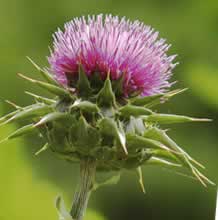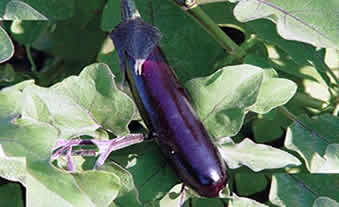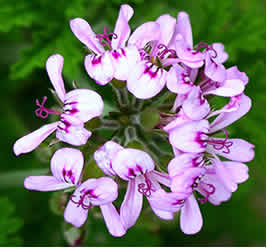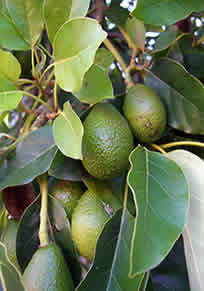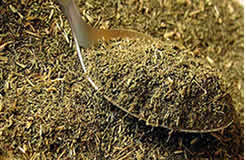Cats claw (Uncaria tomentosa) Herbal Medicine
Cats claw Health Benefits, Dosage, Side effects and Warnings.
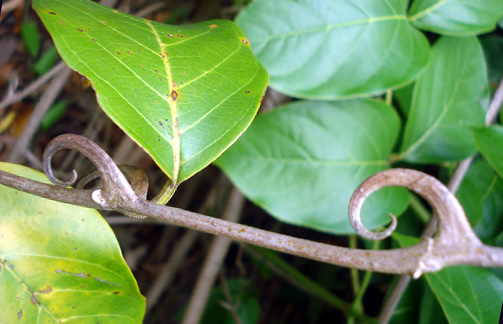
Scientific Name: Uncaria tomentosa
Other names:
Cat's Claw, Una de Gato, paraguayo, garabato, garbato casha, samento, toron, tambor huasca, una huasca, una de gavilan, hawk’s claw
Cat’s Claw (Uncaria tomentosa) is a woody vine found in the tropical jungles of South and Central America. The name is derived from its claw-shaped thorns that resembles a cat’s claw. Cat’s claw is used as herbal medicine to treat varieties of ailments. The herb cat’s claw is believed to have many therapeutic uses that it surpasses well knows herbs such as Echinacea, Golden Seal, Astragalus, Siberian Ginseng, as well as Reishi and Shaitake mushrooms
Cat’s claw is a climbing vine that can reach up to 30 meters in height. Cat’s claw is indigenous to Amazon rainforest and can also be found in other tropical areas in the South and Central America. Cat’s claw crawls and clings to other plants, trees and structures by means of its hook like thorns. Cat’s claw is considered as an invasive plant that is difficult to eradicate and can smolder other plants if grown in a garden. Cat’s claw leaves are elliptic in shape with smooth edges that grow in opposite whorl. Cat's claw grows yellow tube like flowers and it has potato like tubers that grows underground. It produces pods of up to 12 inches in length that contains seeds.
The parts that are for medical use include the inner bark and root, taken in the form of capsules, tea and extract.
Cats claw Traditional Medicinal Uses and Health benefits
Active constituents that are found in Catnip include the following: terpene, Acetic acid, Alpha-Citral beta- Citral, Butyric acid, Citronella, Dipentene, Geraniol, Limonene, Nepetalactone, Nepetalic acid, Nerol, Tannin and Valeric acid . The combination of these constituents provide the claimed health benefits of Catnip although limited scientific research would support these claims.
Strengthens the immune system. Cat's Claw bark and roots are enriched with Isopteropodine content that stimulates the immune system.
Anti-inflammatory activity. Cat’s claw is an effective anti-inflammatory treatment for arthritis, rheumatism, gout, body and muscles pains.
Pain reliever. Cat’s claw does not only have the anti-inflammatory action, but it also helps to alleviate pain.
Stomach or intestinal ulcers. Cats claw has long been used to treat stomach disorders such as stomach pain, colitis, diverticulitis, dysentery and intestinal ulcers.
Hemorrhoids. A concoction from the bark and roots of cats claw is used to treat inflammations associated with haemorrhoids.
Antihelmintics. Cats claw is traditionally used as treatment for parasite infestation of intestine.
Leaky bowel syndrome. Cats claw is also used to treat condition calle leaky bowel syndrome.
Genital and urinary tract inflammation. Cat’s claw is also effective in the treatment of inflammation and infections of the genitals and urinary system.
Gonorrhea. Cat’s claw is also used in the treatment of gonorrhoea.
Anti-viral activity. Cat’s claw is a popular herbal remedy for virus related condition such as Chicken pox. It helps alleviate the symptoms and speedy recovery. It is also used to treat shingles, herpes and cold sores.
Mouth or genital herpes The anti-viral activity of Cat’s claw is used against mouth and genital herpes.
.
Human immunodeficiency virus (HIV). Cats claw is likewise being considered as potential treatment against HIV.
Anti cancer activity. It is known as a strong antioxidant and that it prevents the growth of cancer cells and tumours in the human body
Menstruation. Cat’s claw can improve the flow of menstruation and alleviate symptoms associated with it.
Asthma. Cat’s claw has been used to treat the symptoms and prevent asthma attacks. It is also used to treat hay fever.
Skin problems. The anti-bacterial and the anti-inflammatory properties of Cat’s claw make it useful in the treatment of skin problems and prevent further infection that may include wounds, acne, burns and other skin problems.
Improves memory. Cat’s claw is also considered as a memory enhancer and has been used to treat amnesia.
Diabetes. Cat’s claw has also been traditionally used in managing diabetes.
Science Research: Cats claw Health Benefits
Cat’s Claw used to Stimulate Immune System
Cat’s Claw or una de gato has been cited by D r. Donna Schwontkowski, D.C. as one of the most powerful immune enhancer found in the Peruvian Amazon. According to studies, Cat’s Claw or una de gato contains alkaloids that stimulates the immune system by enhancing the capacity of the white blood cells and macrophages to attack, engulf and digest harmful micro-organisms and foreign matters.
Cat’s claw used for its anti-viral effects.
In studies done on cat’s claw herb extract. It was found out that cat’s claw extract has the ability to attack viral infections on its early stage preventing its progress. Cat’s claw extract is being considered as an alternative treatment for chemically sensitive patients. Cat’s claw also contains quinovic acid glycosides that strengthen the immune system and protecting the body from viruses.
Cat’s claw as Stamina and Energy strengthener
According to studies done by Dr. Satya Ambrose, N. D., cats claw can enhance overall immunity while increasing stamina and energy in patients. This is beneficial for chemically sensitive patients who are suffering from physical and mental exhaustion due to an overactive or stressful lifestyle.
Cat’s claw as anti-Aids (HIV) treatment
Cat’s claw is now being studied for its beneficial effect in against AIDS. Cat’s claw activity is being used to fight opportunistic infections in AIDS patients and to de-crease the visible size of some skin tumors and cysts.
Cat’s claw as stroke prevention.
Studies done in Shanghai College of Traditional Chinese Medicine has shown that an alkaloid found in cat’s claw displayed an ability to inhibit platelet aggregation and thrombosis. This result suggests that cat's claw may provide health benefits for people at risk of strokes and heart attack, by increasing blood circulation, lowering blood pressure, inhibiting plaque formation and preventing formation of blood clots in the brain, heart and arteries.
Cat’s claw as anti-inflammatory
Another medicinal use of cat’s claw is its anti-inflammatory effects. Cat’s claw has been studied in the treatment of arthritis, rheumatism, bursitis and gout. t's beneficial effects in treating arthritis pain may also be due, in part, to its ability to cleanse the digestive tract and aid in removing toxins from the body. Arthritis, joint pain and inflammation as well as chronic fatigue, allergies, immune deficiency and a host of other conditions have been associated with defects in intestinal permeability (leaky bowel syndrome! and toxin overload.
Cat’s claw as anti-oxidant.
according to the traditional Peruvian medicine presented a potent radical scavenger activity, as suggested by its high capacity to reduce the free radical diphenylpicrylhydrazyl, and by its reaction with superoxide anion, peroxyl and hydroxyl radicals as well as with the oxidant species, hydrogen peroxide and hypochlorous acid. The phenolic profile shows the presence of proanthocyanidins (oligomeric procyanidins) and phenolic acids, mainly caffeic acid.
Cat’s claw is also studied for its antioxidant properties. Results have shown that cat’s claw is a potent scavenger of free radicals while at the same time helps protect cells from damage. Cat’s claw is rich in beneficial phytochemicals including quinovic acid glycosides, proanthocyanidins, polyphenols, oxindol alkaloids, triterpines and the various plant sterols.
Cat’s claw as pain releiver
Glycosides found in the cat’s claw extract has been found to alleviate pain. Cat’s claw is being used in reducing pain associated with chemotherapy, radiation treatment and AZT use.
Cat’s claw as treatment for bowel and intestinal problems
In a study done on 150 patients with varying stomach and intestinal problems, cat’s claw extract has shown positive effects in cleaning the intestinal walls. This cat’s claw ability to cleanse the intestinal tract may help patients suffering from bowel and stomach problems including irritable bowel syndrome, leaky bowel syndrome. Crohn's disease, gastritis, ulcers, intestinal parasites, diverticulitis, hemorrhoids and fistulas.
By cleansing the intestinal walls, cat's claw enables the body to better absorb nutrients, thus helping to correct nutritional imbalances created by digestive blockages.
Cat's claw as Cancer prevention
Studies have confirmed that extract from cat’s claw has an inhibiting action against the proliferation and division of tumor cells.
Cat’s claw has DNA repair activity.
In a study entitled “DNA repair enhancement of aqueous extracts of Uncaria tomentosa in a human volunteer study. Phytomedicine. 2001, Cat’s claw extract has been administered to human volunteers who were subjected to DNA damaged caused by hydrogen peroxide. When the test subjects who were supplemented with cat’s claw extract were compared to non supplemented control group, results have shown that the test subjects taking cat’s claw supplement has increased DNA repair activity. This trial has confirmed an earlier result done in rat model when estimating DNA repair enhancement by cat's claw.
How to Get and How to Use
Where can I get or buy Cats claw?
Cats claw can be seen in the wild which grows in central and southern America. You can grow your own by planting cuttings in a pot or in your garden. Almost all parts of the plant can be used in herbal preparation.
Cats claw is also commercially prepared as oil, tincture, powder, capsule and soft gel form. Cats claw supplements are available in most fitness and health stores. Cats claw is also available online via Amazon as listed: High Potency Cat's Claw , there are other brands, be sure to select one from a reputable manufacturer and do follow the suggested dosage.
, there are other brands, be sure to select one from a reputable manufacturer and do follow the suggested dosage.
Dosage
- Decoction : 1 cup twice daily
- Capsules : 1 – 2 grams 2 to 3 times daily
- Fluid Extract and tinctures : 3 – 4 ml, 2 times a day
- Standardized extract : follow as instructed.
Cats claw tea or decoction.

- Prepare about half teaspoon of dried Cats claw parts for every cup of water.
- Boil for 10 to 15 minutes
- Let it steep and strain
- Store in a glass jar for later consumption
- Drink 1 cup, twice to three times a day after meals.
You can add other herbs or honey to improve the efficacy and taste.
Dosage, Warnings and Side Effects
Generally safe. Cat's claw is likely safe for most people, when taken by mouth short-term.
Possible side effect when taken in excess. Headache, dizziness, nausea and vomiting.
Special Precautions & Warnings:
Pregnancy: Cat’s claw should be avoided when pregnant. Cat’s claw has been known to stimulate menstruation and maybe a cause of miscarriage.
Breat feeding. There is not enough scientific study done to determine potential side effects of Cat’s claw herbal medicine to infants during breast feeding. It is best to avoid its use.
Auto immune diseases. Cat’s claw has been known to strengthen and activate the immune system. Cat’s claw should not be used when suffering from MS, lupus and other similar conditions.
Bleeding disorders: Cat’s claw might increase the risk of bruising or bleeding in people with bleeding disorders. Cat’s claw is known to slow down blood clotting.
Lowews blood pressure: There is evidence that cat’s claw might lower blood pressure. Cat's claw may aggravate blood pressure effects of medicines being taken. Consult your health specialist before taking Cat's claw.
Suggested Health Articles


